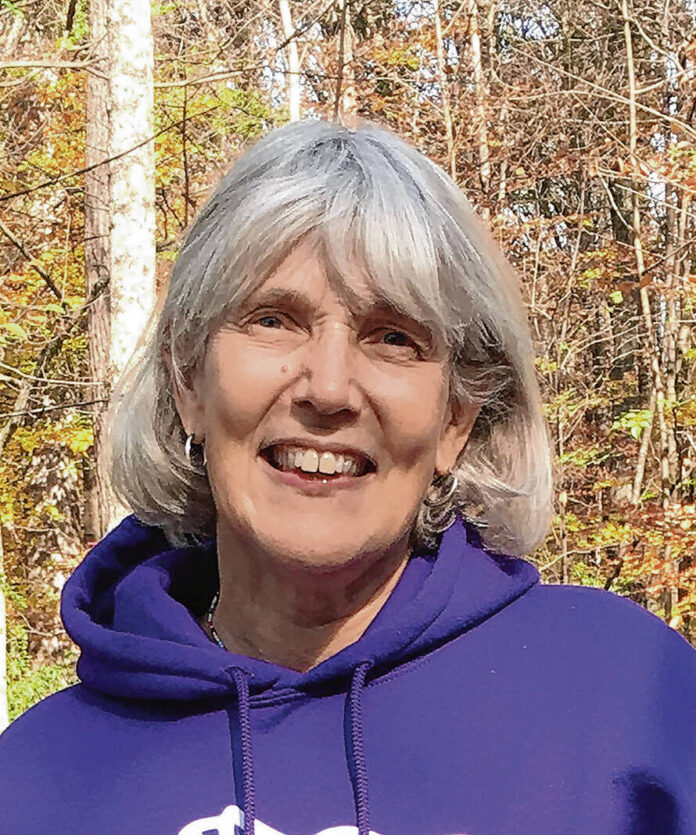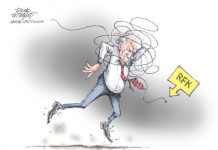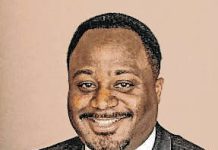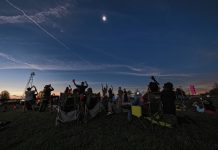I’m back in elementary school. Not as a student, although, I could definitely use a refresher on fractions. I’m a classroom volunteer. Once a week, I help remedial readers in my grandson’s first grade class, and I lead a book discussion group for my granddaughter’s fifth grade class. It’s a challenge to get up at the crack of dawn on Tuesday mornings, but once I’m done with my responsibilities and heading home, I’m grateful for the time I’ve shared with the children. I see our public schools as one of the bedrocks of our democracy, and volunteering has reinforced my sense of patriotism.
Years ago, I accompanied my husband, Mike, on an eye-care mission to the Central American country of Belize. We weren’t there long before we realized—for the most part—Americans take our system of free K-12 public education for granted. When you turn 14 in Belize, you’re required to pass a rigorous entrance exam to be accepted to high school. And even if you pass the test, high school isn’t free. Tuition is charged. Very few needy children in Belize (and there are many) go on to high school. The same is true in many third-world countries. Mike and I did our work in Belize at a small Friends (Quaker) School that served disadvantaged children. The director and his wife worked tirelessly to help their older students get accepted to high school.
Our public schools and teachers in America are getting a bad rap these days. Teachers are my heroes. They work long hours, and though they’re required to have both bachelors and master’s degrees, they make less salary than many other professionals. Our school instructors are challenged to teach children with different learning abilities, who also come from many different social and cultural backgrounds. It takes a very special person to do that work.
When the morning bell rings in my grandson’s first-grade classroom, the teacher has the children stand, place their hands over their hearts, turn to the flag and recite the Pledge of Allegiance. I’m sure reciting the Pledge has become a rote task for the little ones, but last week I listened carefully to every word as we said the Pledge together. The word that stood out to me was “indivisible.” Maybe if all of us, young and old, said the Pledge of Allegiance daily, we’d remember the responsibilities we have as citizens of our great democracy. Let’s get back to being indivisible, instead of being separated by a big divide.
My granddaughter’s book discussion group is reading “The Westing Game” by Ellen Raskin. It’s a mystery novel with a large cast of characters. Now that we’ve finally figured out who’s who, the kids are getting drawn into the plot. They want to know which character will win the “Westing Game.” We’re at a place in the story where the characters have been given word clues to help them solve the mystery. Words like plain, grain, sea, mountain, fruit, purple, waves, sea, thee, for, skies, shining, brother, good, gracious, hood, spacious, grace.
I asked the kids if they saw a pattern developing in the clues. I shared a hint: “Think about a patriotic song.” One youngster shouted out, “The Star-Spangled Banner!” I said they were on the right track, but I reminded them the words were actually jumbled-up lyrics from “America the Beautiful.”
The students are intrigued now and trying to guess how these clues will come together for the win.
Maybe we adults can put America the Beautiful back together, too. It’s time to crown our good with brotherhood, from sea to shining sea.
Sharon Mangas is a Columbus resident and can be reached at [email protected]. Send comments to [email protected].





